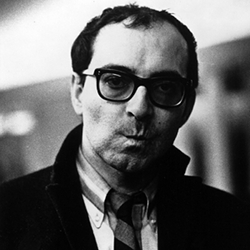
Hannibal: “Su-zakana” (2.8) - TV Recap
Hannibal: Season 2 Episode 8 - Su-zakana
April 18, 2014, 10:00 p.m. (EST), NBC
On its surface, “Su-zakana” feels like a procedural episode from Hannibal’s first season. There is a killer of the week, and Will Graham is helping the FBI track him down. Meanwhile, Will is receiving psychiatric treatment from Hannibal Lecter, a figure of much more complexity than Will, or anyone around him, can possibly comprehend. Where “Su-zakana” differs is that now, all of the little pieces that used to make up this show’s short forays into the twisted minds of psychotic killers add to a larger whole that has grown immeasurably more layered. This is a story of death and rebirth. It is a story of men who think they are playing God who more accurately resemble Lucifer. It is a story of pawns in larger games seizing desperately for their own agency, and of the dark, traumatic toll their becoming often takes.
“Su-zakana” looks like a season one episode, but in fact, it isn’t like that season at all. The name of this week’s episode (so a cursory internet search I find myself doing each week this season tells me) is a vinegar-based palate cleanser, and “Su-zakana” is a chance to breathe between the season’s first major arc and its end game. The tension here is no less riveting than in previous hours, but it is different than what those episodes have been going for. Our characters feel safe this week, but on Hannibal, nothing is ever as it seems, and really, each of them is in a more precarious position than ever before.
Peter Bernadorne (Jeremy Davies, of Justified fame) is an eerily apt parallel for Will: a brain-damaged man with an excess of empathy, pulled into the thrall of a psychopath hiding in plain sight and used as a puppet and a patsy for some very dark deeds. Davies is great in the role, oozing anguish and tortured confusion even as he sews his psychological captor into the womb of a horse (no other show on television would allow me to type that sentence, which the show recognizes in its particular darkly humorous fashion when Will calmly inquires “Peter, is your social worker in that horse?”). Clark Ingram (Chris Diamantopoulos) toys with Peter in part because it is convenient and in part because he’s curious what will happen when he lays bare a man’s mental state and toys with it like a child deconstructing Legos.
But by showing us a pattern that resembles Will and Hannibal’s relationship last season, “Su-zakana” indicates just how far beyond that dichotomy our two leads have moved. They have both evolved through this process, and they understand each other better now. They are closer to equals, which fascinates them both even as it repels Will. To catch a killer, Will has to become him, even if only for a moment. But Hannibal is the biggest fish Will has ever tried to lure, and in bringing him down, Will is having to learn to live with Lucifer in the back of his mind. To become Hannibal Lecter is to lose parts of himself Will can never hope to regain, and as his finger hesitates on the trigger tonight, with Hannibal literally whispering in his ear, it is clear just how much Will Graham has lost, and how little he has gained to this point. What he has is knowledge, of himself, and of his quarry. What worth that knowledge has in a world strewn with bodies that result from his hunt is an open question, but Will Graham is no longer becoming: he has become, and now he must learn how to live in the world.
We also get our first taste of Mason (Michael Pitt) and Margot (Katherine Isabelle) Verger tonight, and their relationship also serves as a mirror of Will and Hannibal’s. Mason has used Margot as a play thing in his sick, elaborate games (he flavors his martini with a tear he has captured while molesting her), and Margot has become somewhat aware in the process. She is a pawn to Mason, but not an unthinking, unfeeling one. She is not a piece in someone else’s game, she is a person not being recognized by her tormenter. On Hannibal, people make a habit of repeating the other characters’ names, partially as an attempt to reach and connect with them, and partially, I suspect, as an exercise in reminding themselves that their conversational partners are people. These characters spend so much time dissecting people, literally and psychologically, it can be hard to keep track of those around them as living, breathing, thinking creatures with their own autonomy and deserving of their own respect. Names, then, become a way of categorizing others as separate, yes, but also as a thing worth valuing for more than just the sum of the organs contained within their skin.
Hannibal justifies his actions, to himself at least, as “doing bad things to bad people.” This is an idea that is increasingly appealing to Will, a man who has taken a life and who longs to end the dark reign of Dr. Lecter by any means necessary. Season two of Hannibal is an extended exercise in reminding us just how similar Will Graham and Hannibal Lecter have become. Will will catch this fish, eventually. But luring him will leave scars of the sort that will keep Will up at night for the rest of his life. There is something to be said for doing bad things to bad people. But the things we do leave marks on us, as well, and bad acts are not redeemed if our victims are deserving. They feel better, maybe. But they still sting just as much in the end.
The Roundup
- -“How do you catch a fish that isn’t hungry?” “You change your tactics.”
- -“I’m a good fisherman, Jack.” “You hook him, I’ll land him.”
- -“Beautiful fish, Will.” “It was my turn to provide the meat.”
- -“She was strangled. It’s a little wordy.”
- -“It would actually have been more therapeutic if you had killed him.”
- -“I took your life, then tried to give it back to you.”
- -“This wasn’t murder, Jack. This was grief.”
- -“Rebirths can only ever be symbolic.”
- -“I don’t expect you to admit anything you can’t, but I prefer sins of omission to outright lies, Dr. Lecter. Don’t. Lie to me.”
- -“I don’t want to kill you anymore, Dr. Lecter. Not now that I finally find you interesting.”
- -“I’m much weirder than you will ever be, Margot. It’s fine to be weird.”
- -“It’s not my role to believe you, Margot. It’s my role to help you understand what you believe.”
- -“Society needs caring people.” “It also needs a few psychopaths. To keep the rest of us on our toes.”
- -“I know what its like to point at a killer and have no one listen.”
- -“I think he deserved to die.” “But you didn’t deserve to kill him, Peter.”
- -“I envy you your hate. It makes it easier when you know how to feel.” “Makes what easier?” “Killing them.”
- -“I can feed the caterpillar, and I can whisper through the chrysalis. But what hatches follows its own nature and is beyond me.”






















